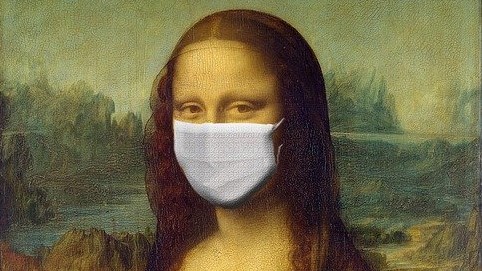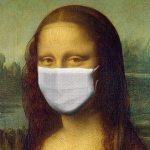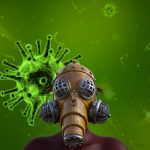Vaccine may be unnecessary, says ID expert, as Department of Health weighs a telehealth rebate
The Health Department is “actively considering” all options for managing COVID-19, including a Medicare telehealth item for GPs, as RACGP president Dr Harry Nespolon says GPs are triaging patients on the phone for free.
As the global number of cases sits at nearly 93,000 Australia has had 41 cases, including a Sydney doctor with no travel history or known case contact and an aged care worker. Two people have died.
Even with a telehealth number, finding time for phone calls would still be a challenge for practices that were fully booked, Dr Nespolon told TMR. But GPs needed an alternative to walk-ins, he said, after a brush with the pandemic virus in his own Sydney rooms.
“We had a set of patients [from an affected country] who just rocked up on Friday and sat in the waiting room, even though they were concerned they might have the coronavirus,” Dr Nespolon said. “So that really stuffed us up for a little while.” (They ended up testing negative.)
“We do our best, we have signs and we do all those sorts of things, but patients don’t always follow exactly what you ask them to do.”
Chief Medical Officer Brendan Murphy told Senate Estimates today that an expansion of Medicare-rebated telehealth beyond the bush was being considered.
“We are certainly looking at telehealth items, not only for coronavirus consultations, but potentially for people with chronic disease so they could have a consultation with their GP without having to go to the practice,” he said.
And the Health Department told TMR that “all measures for combating COVID-19 are under active consideration”.
“It may be that better results for the community are achieved through managing coronavirus diagnosis and testing through special-purpose triage phone lines, clinics and laboratories,” a spokesperson said. “This will provide greater capacity to ensure infection control processes are applied consistently.”
But Dr Nespolon said people were calling their GPs regardless, and were more likely to trust their GP than a government line. The government needed to clearly advise GPs what their role was and then resource them properly, with personal protective equipment as well as extra remuneration.
“Patients are still going to be rocking up at general practices and they’re still going to be calling their practices. GPs are going to need to be able to offer them advice and potentially some sort of management. So the department is going to have to be clear about the role of general practice.”
In an interview for Healthed recorded at the weekend and webcast last night, Dr Nespolon spoke to Sydney University clinical microbiologist and infectious diseases physician Dr Bernard Hudson about COVID-19 and how GPs should handle it.
Dr Hudson said the level of PPE required depended on each patient’s level of risk. To take a swab from an obviously high-risk patient, such as one with a nebuliser or coughing, a N95 mask was necessary. For a low-risk patient, an ordinary surgical mask probably gave sufficient protection.
But he stressed that N95 masks needed to be properly fitted and carefully removed, were useless when they became moist and were anyway too uncomfortable to wear for long periods, such as on a plane.
Since the SARS-CoV-2 virus has a membrane, alcohol-based hand sanitisers “work beautifully” to kill it and disinfect surfaces. “Washing with soap gets rid of the organic matter and the bio-burden, but may not necessarily kill the virus,” he said.
The case-fatality ratio appeared to be overall 2 to 2.5% (the WHO has since said it’s more like 3.4% globally) and, as with influenza, higher among patients with diabetes and cardiovascular disease. Immunocompromised patients might shed more and for longer, and be more susceptible for serious lung infection.
Dr Hudson said better technology and previous experience with novel coronaviruses SARS and MERS meant we were quite well prepared to deal with an outbreak, and that it was better to overreact than underreact.
“I think we’re in pretty good shape. But you know what it’s like in a flu season: general practice and hospitals can get overwhelmed. If it hits during a really bad flu season here we could still have trouble coping, but at least we’ve done the groundwork with planning and resources.
“The burden on the health system that influenza causes every year is not inconsiderable and very expensive, and having this at the same time could be massive for both the community and business.”
He said it was likely that every country would eventually see cases and local transmission.
This meant that, while a vaccine would probably eventuate, it was uncertain whether it would be needed. Since coronaviruses don’t mutate as significantly as influenza, once SARS-CoV-2 had spread through a population and left a high proportion with immunity, it might not be able to sustain itself.
In the meantime, he said, there were plenty of drugs on the market for existing viruses that could probably help the minority of patients who needed any treatment: oseltamivir (influenza), remdesivir (Ebola), or the combination of interferon-alpha with ritonavir and lopinavir (HIV) that was being used in China.
Dr Hudson’s advice for GPs was, above all, “don’t panic”.
“It’s not as bad as it seems,” he told Dr Nespolon.
“The people who are going to get sick and die are more likely the people who get sick and die from influenza.
“It’s a good reminder about microbiology and virology and personal protective equipment, good hand hygiene, and coughing and sneezing into your elbow.
“Be aware that the authorities in Australia have done a good job. Trust the information they give you and be aware … that there’s quite a lot of support out there.
“Identify the patients, look at the health department websites, and if you’ve got a problem you can always ring the public health unit in the first instance because they’re pretty well tuned into what the steps are.”





